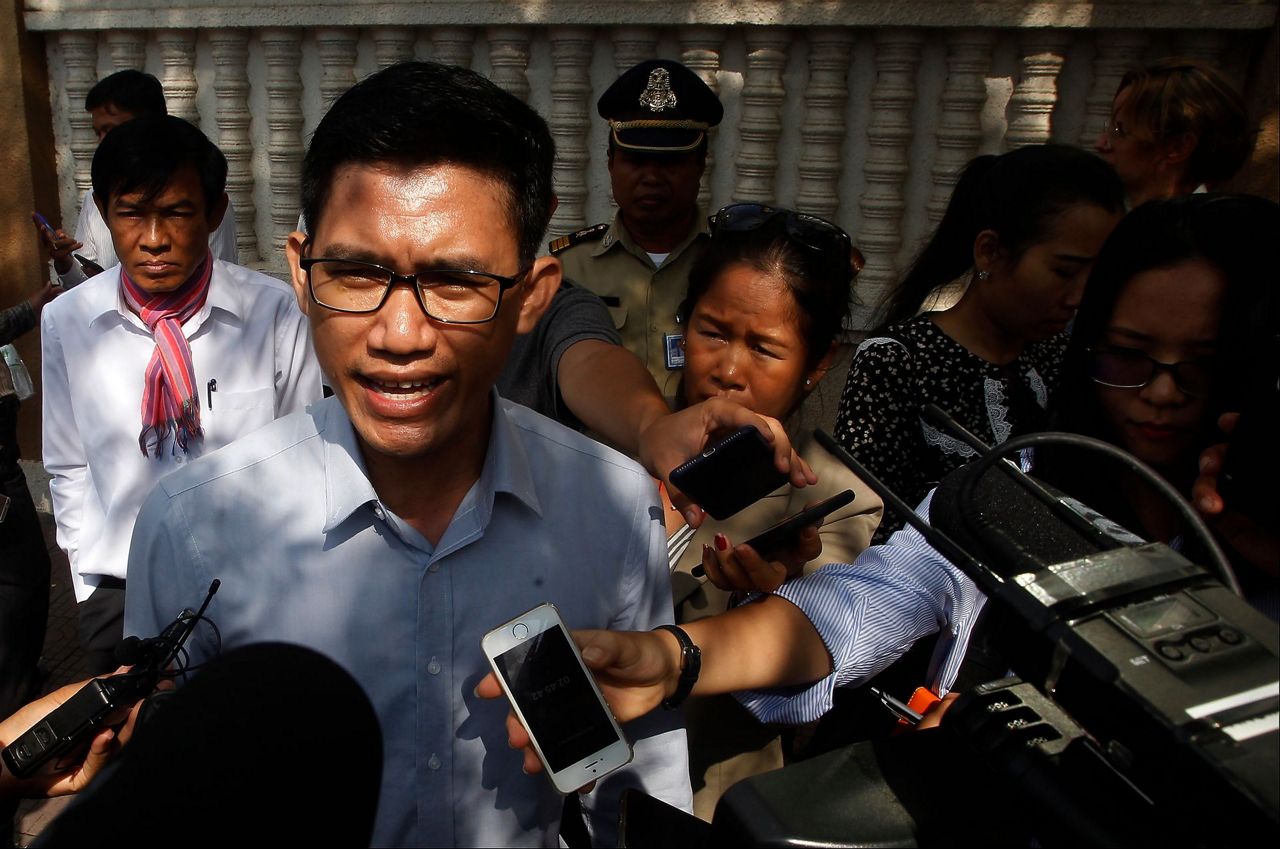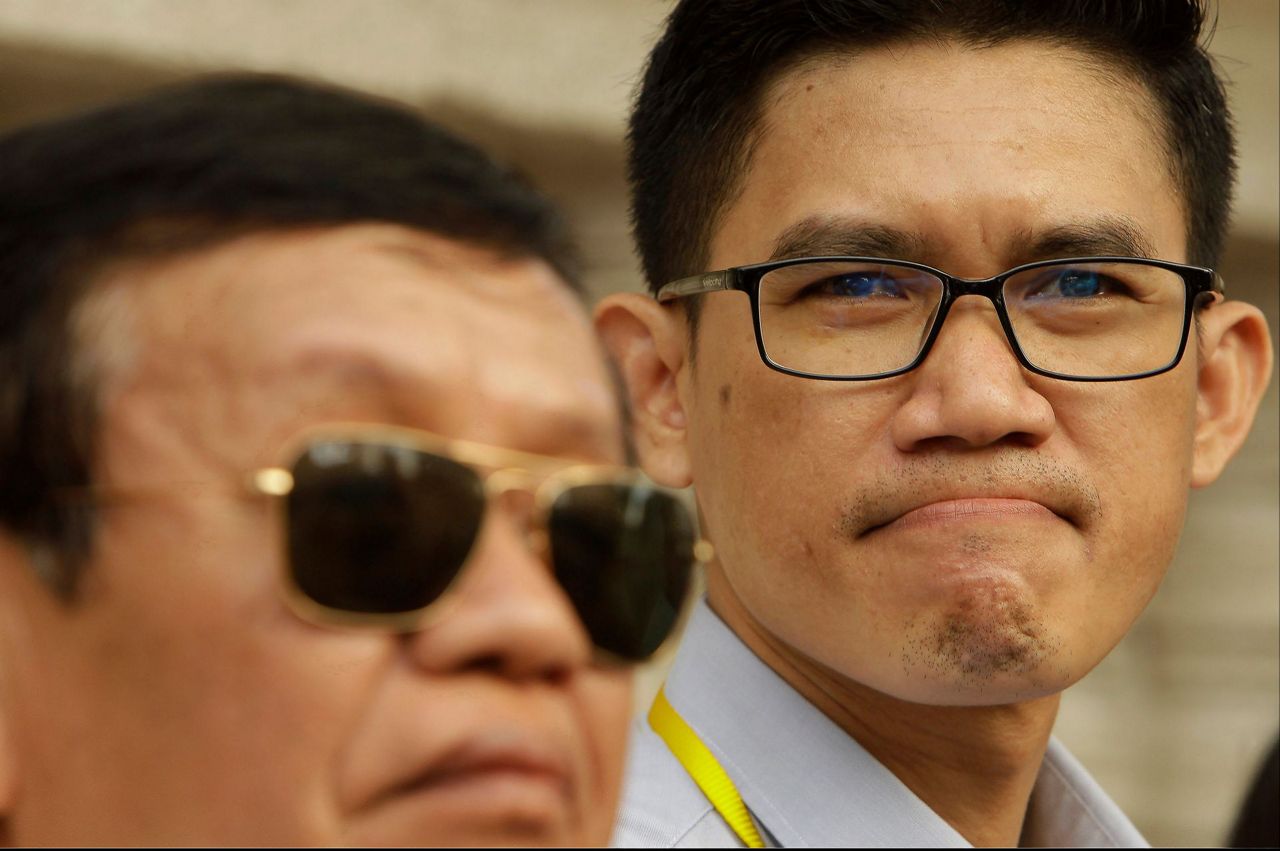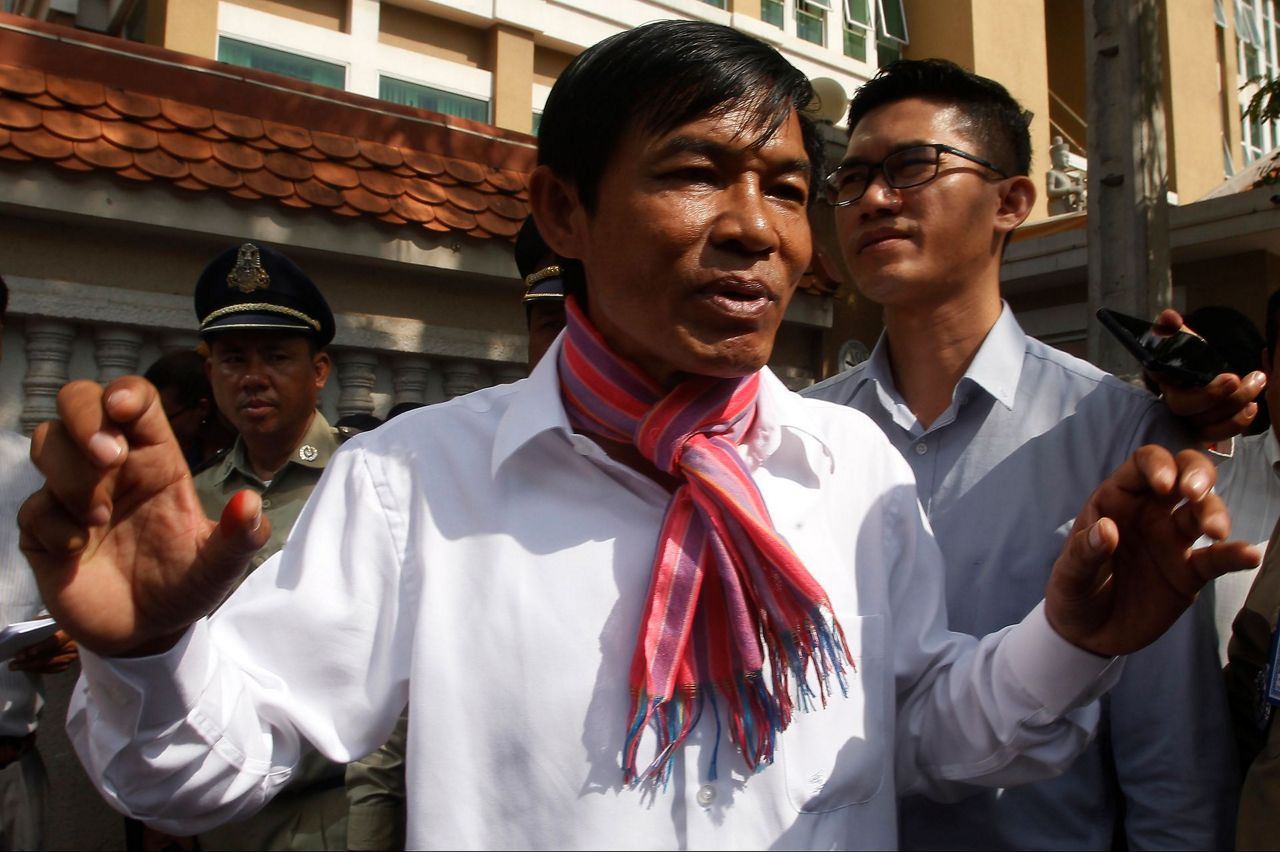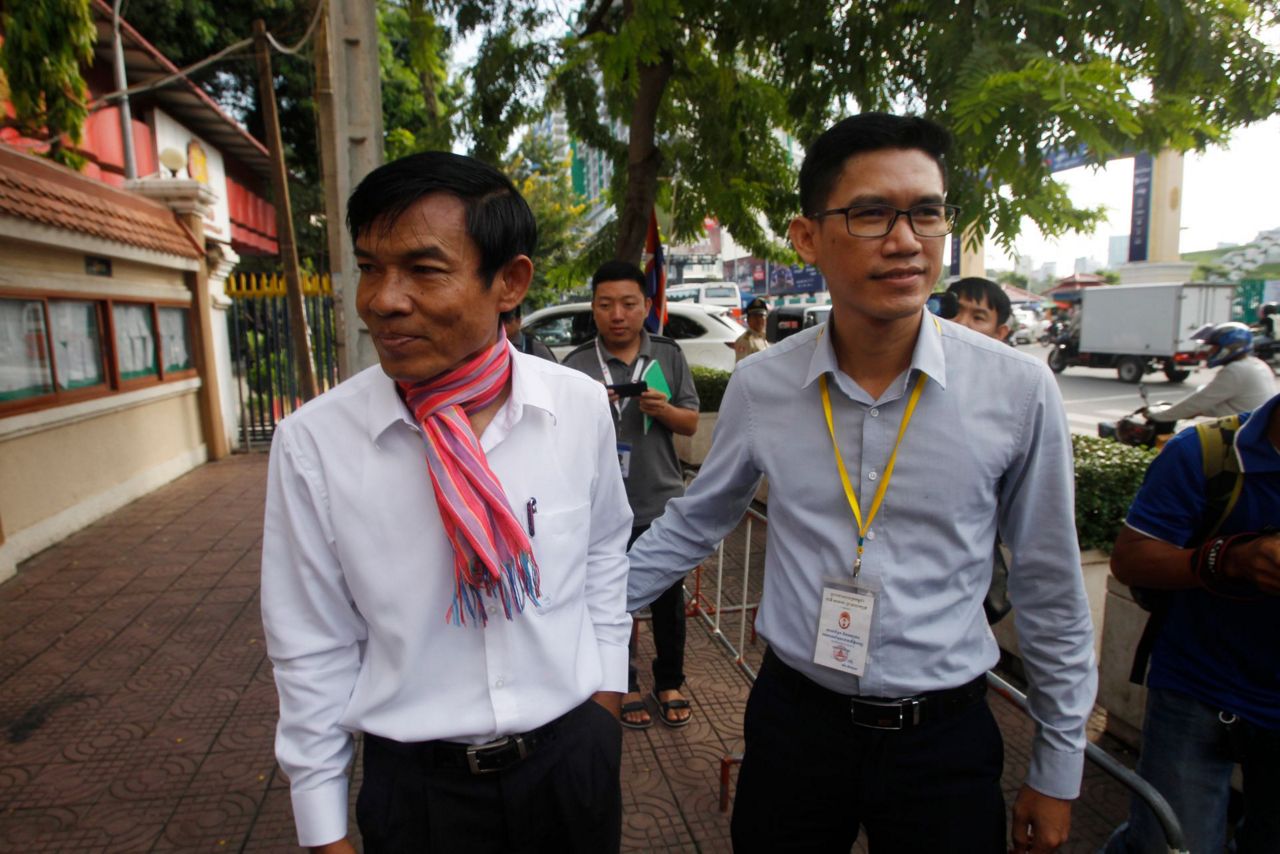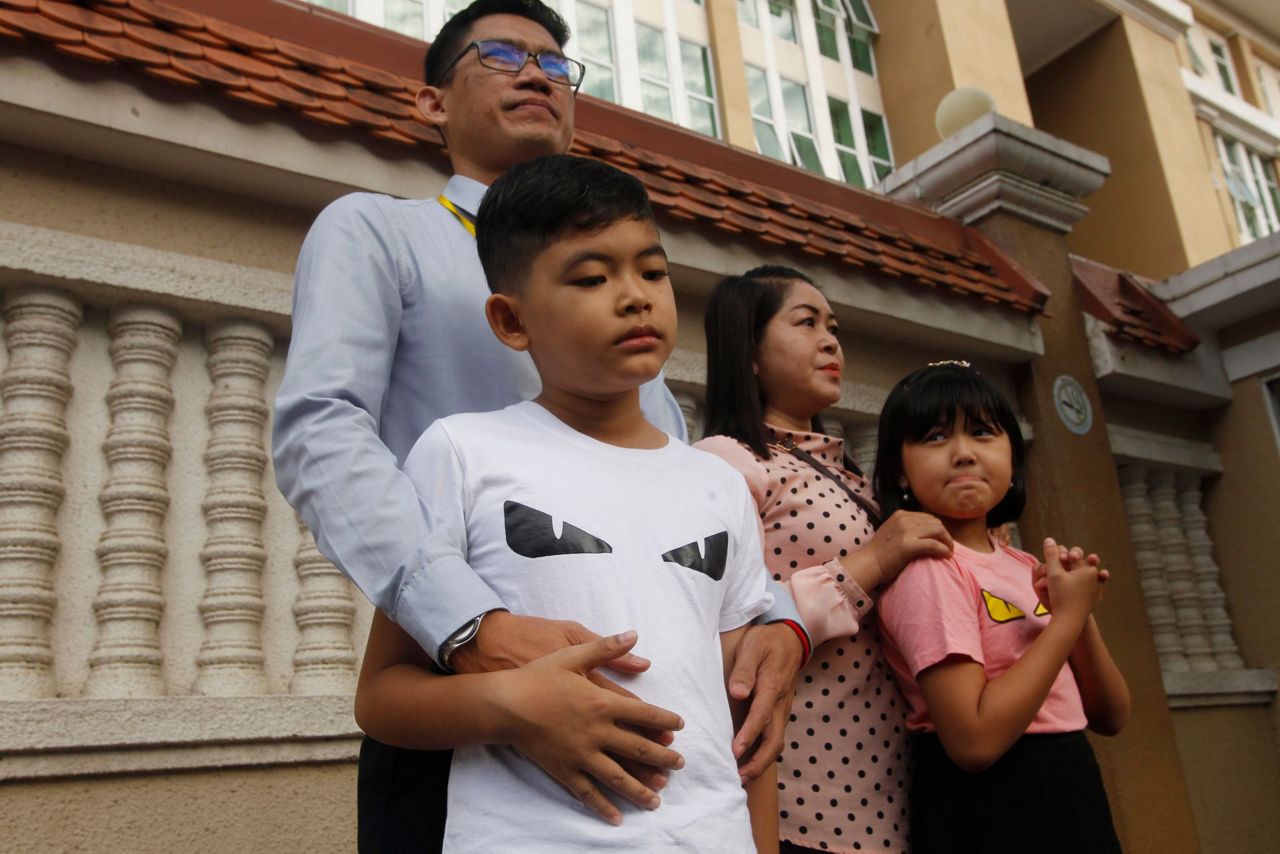PHNOM PENH, Cambodia (AP) — A court in Cambodia on Thursday ordered a new investigation and postponed a verdict in the espionage trial of two journalists who had worked for a U.S. government-backed radio station.
Uon Chhin and Yeang Sothearin were arrested in November 2017 during a crackdown on the media and opponents of Prime Minister Hun Sen's government. They were charged with undermining national security by supplying information to a foreign state, an act punishable by up to 15 years’ imprisonment.
Judge Im Vannak of the Phnom Penh Municipal Court said the investigation had been insufficient.
He said electronic equipment confiscated from the defendants would have to be examined again, with the case returned to a new investigating judge.
The men remain free on bail but were disappointed by the ruling. It was the second time in just over a month that they had appeared in court expecting to hear a verdict.
Yeang Sothearin told reporters the court was prolonging their “suffering.”
“When I came today, I was strongly expecting that I would get justice from the court or get a clear decision by the court, but that did not happen,” he said. “I am not afraid of the court conducting a new investigation into our cases, but by doing so it will affect our freedom.”
The ruling comes at a sensitive time for the government as it seeks to ward off the threat of major economic sanctions from the European Union, which is currently considering withdrawing preferential trade tariffs from Cambodia because of its suppression of democratic rights. The United States has applied limited sanctions and is under pressure to do more.
The 2017 crackdown, which included a court-ordered dissolution of the country's only viable opposition party, was generally seen as an effort to ensure victory for Hun Sen's ruling Cambodian People's Party in the 2018 general election.
The party swept all the seats in the National Assembly but drew serious criticism from Western nations.
“I think we are hostages in the current situation, and I know that we would not be arrested if we had not worked for Radio Free Asia,” said co-defendant Uon Chhin.
Hun Sen, who has been in power for four decades and announced his intention to serve two more terms, has nonetheless kept the pressure on his political opponents, some of whom are calling for regime change by mass peaceful action.
Members of the opposition are often hounded in the courts, which are considered by critics to be under the government’s influence.
“The legal harassment of former RFA reporters Yaeng Sothearin and Uon Chhin has gone on way too long and should stop immediately. A new investigation into what were already spurious charges is unacceptable and will continue to cast a shadow over Cambodia’s darkening press freedom situation,” said Shawn Crispin, Southeast Asia representative of the New York-based Committee to Protect Journalists.
“The unwarranted espionage charges against the two have done huge damage to Cambodia’s reputation as a democracy and should be taken into account in any U.S. or E.U. assessment on whether to impose penalties or sanctions for the government’s ongoing anti-democratic clampdown, including against the free press.”
Police initially said the two defendants had been detained for running an unlicensed karaoke studio. But they were later accused of setting up a studio for Radio Free Asia, which they deny, and were charged with espionage.
Their release on bail a month after last year's election was conditional on monthly police station visits and confiscation of their passports, which they say makes it difficult to find a job. A verdict in the case was originally scheduled for Aug. 30, but postponed because the judge had a meeting at the Justice Ministry.
Radio Free Asia closed its Phnom Penh bureau in September 2017, citing government intimidation of the media, which it said had reached an "unprecedented level." By the end of 2017, the government had closed more than two dozen local radio stations, some of which had rebroadcast RFA's programs. Independent print media came under similar pressure.
RFA is funded by an independent U.S. government agency and says its mission is "to provide accurate and timely news and information to Asian countries whose governments prohibit access to a free press." Its programs are transmitted by radio and television and also carried online.
Copyright 2019 The Associated Press. All rights reserved. This material may not be published, broadcast, rewritten or redistributed.



